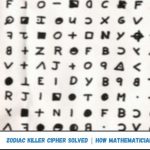Who was Nostradamus and what did he predict? This article explores the life of Michel de Nostredame—better known as Nostradamus—and the prophetic verses that made him a household name. From his background as a physician to his cryptic quatrains, we delve into the predictions tied to global events and examine what makes his work so enduring. With centuries of speculation and debate, discover whether his prophecies were coincidence, calculation, or something more.
They say no prophet is recognized in their own land—but Nostradamus proved to be a remarkable exception.
Celebrated across France during his lifetime, Michel de Nostredame, known to history as Nostradamus, quickly gained fame not only for his prophetic writings but also for his medical work during plague outbreaks. Over time, he would become one of the most widely known and enduring non-Biblical prophets in history—a reputation that still resonates centuries after his death.
Who Was Nostradamus and What Did He Predict?
“The future belongs to those who prepare for it today.” While that quote is from Malcolm X, it reflects a sentiment eerily echoed by Nostradamus, the 16th-century French seer whose predictions continue to stir curiosity and controversy.
From claims of predicting World War II to 9/11 and even modern pandemics, many wonder:
Was Nostradamus truly able to see the future—or just a master of ambiguity?
This article breaks down:
- Nostradamus’ background and influences
- His method of prediction and writing style
- The most talked-about prophecies
- Modern interpretations and criticisms
Who Was Nostradamus? A Glimpse Into His Life
Michel de Nostredame was born in 1503 in Saint-Rémy-de-Provence, France. He trained as a physician, gaining recognition for treating plague victims during several outbreaks. However, it was his interest in astrology and the occult that defined his legacy.
By 1555, Nostradamus began publishing his prophetic works, collectively known as “Les Prophéties.” These were written in four-line poetic verses called quatrains, filled with symbolism, metaphors, and obscure references.
📜 He published over 900 prophetic quatrains, many still studied today.
How Did Nostradamus Predict the Future?
Nostradamus combined astronomy, astrology, historical texts, and his own visions to formulate his predictions. He often used vague language—some believe intentionally—making interpretation flexible over centuries.
Key Aspects of His Prediction Style:
- Written in French, Latin, and Greek, with anagrams and wordplay
- Astrological calculations based on planetary positions
- Symbolic and non-linear storytelling, leaving room for reinterpretation
His goal wasn’t to be precise—but to offer cryptic foresight, guiding future generations to recognize patterns and events.
Famous Nostradamus Predictions: Fact or Fiction?
Some of Nostradamus’ quatrains are believed to correlate with major historical events. Here are a few examples that followers frequently cite:
1. The Rise of Hitler (Quatrain 2:24)
“Beasts ferocious with hunger will cross the rivers…”
Many interpret this as referencing Adolf Hitler, whose name closely resembles “Hister” (a Latin name for the Danube).
2. The Great Fire of London (Quatrain 2:51)
“The blood of the just will be demanded of London…”
Believers say this foretells the 1666 fire that devastated the city.
3. 9/11 Attacks (Quatrain 1:87)
“Earth-shaking fire from the center of the Earth will cause tremors…”
Although widely disputed, some tie this to the World Trade Center collapse in 2001.
4. The COVID-19 Pandemic
Some modern interpretations of Nostradamus’ verses suggest he predicted a global plague in the 21st century, though no quatrain clearly names COVID-19.
Why Do Nostradamus’ Predictions Still Matter?
Nostradamus has remained relevant for centuries because of:
- Timeless language that allows reinterpretation
- Recurring interest in prophecy during global crises
- Pop culture references, including books, films, and documentaries
Even today, Google searches for “Nostradamus predictions” spike during global unrest, showing how uncertainty renews interest in his work.
Is Nostradamus Still Considered Credible Today?
Opinions are split:
Supporters argue:
- His use of astrology and deep historical knowledge gave him predictive insight.
- The recurrence of accurate-seeming interpretations can’t be coincidence.
Skeptics believe:
- His quatrains are too vague to prove anything concrete.
- Most “predictions” are retroactively fitted to events.
Regardless of where you stand, Nostradamus continues to fascinate millions—and provoke meaningful conversations about fate, foresight, and interpretation.
FAQs
1. Who was Nostradamus?
A 16th-century French physician and astrologer known for his prophetic writings.
2. What did Nostradamus predict?
He wrote over 900 cryptic quatrains believed to predict major world events.
3. Did Nostradamus predict 9/11?
Some claim he did, but no direct evidence supports this; interpretations vary.
4. Was Nostradamus ever correct?
Some quatrains seem to align with historical events, though often vaguely.
5. Are Nostradamus’ predictions still relevant today?
Yes—people revisit his work during times of uncertainty or crisis.
6. How accurate are Nostradamus’ prophecies?
Accuracy is debated; many interpretations are made after the fact.
Conclusion
Nostradamus remains one of history’s most controversial and compelling figures. Whether prophet or poetic philosopher, his verses continue to spark debate and wonder. As long as humanity faces uncertainty, his cryptic predictions will echo through time—reminding us of our enduring desire to know what lies ahead.







